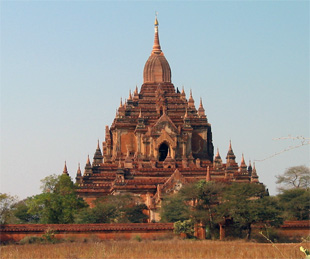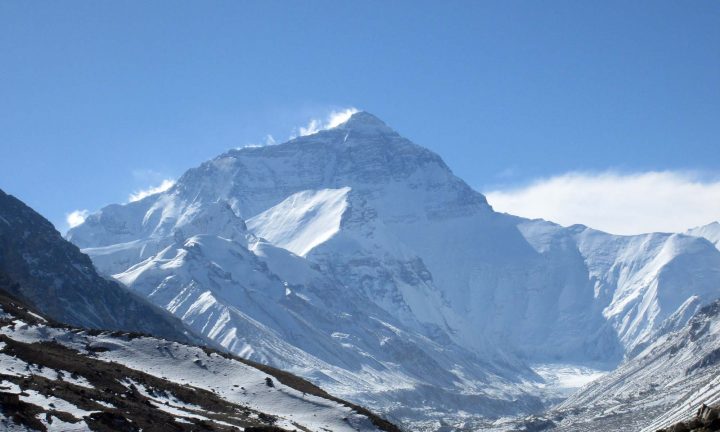“Close your eyes and point in any direction,” our Burmese guide challenged, “When you open them, you will be pointing at a spire.” Sure enough, no matter which way we pointed there were hundreds of spires on the stupas and temples that spread across the almost treeless plain.
 Located on forty square miles on the east bank of the Ayeyarwady River, 300 miles north of Yangon (Rangoon), Myanmar’s Bagan stands as one of the two most preeminent ancient religious sites in Southeast Asia along with Angkor Wat in Cambodia.
Located on forty square miles on the east bank of the Ayeyarwady River, 300 miles north of Yangon (Rangoon), Myanmar’s Bagan stands as one of the two most preeminent ancient religious sites in Southeast Asia along with Angkor Wat in Cambodia.
It was in Bagan that the Buddhist religion took hold in Myanmar, influencing the society, its art and architecture.
Historically, Bagan was formed from 19 villages at a time when the region was beginning a transition from its Hindu origins to the Buddhist beliefs that are still a major force today. Manuha, the king of Thaton, a Mon kingdom to the south of Bagan, sent a monk to convert King Anawrahta of Bamar (the origin of the name Burma) to the new religion. Once converted, King Anawrahta asked for a number of sacred scriptures to be brought to him. The monk was unsure of the king’s sincerity, so he refused the request. In response, King Anawrahta attacked and conquered Thaton in 1057 AD, and brought back to Bagan classic Buddhist scriptures, as well as artisans, craftsmen and architects.
Thus began the golden age of Bagan, highlighted by the building of thousands of pagodas. Over 13,000 of these religious structures were built. Two and a half centuries later, in 1287 AD, Bagan was conquered by Kublai Khan and began to decline.
For many years the region was considered to be inhabited by bandits and nats (spirits). Once the British came to the area in the 18th century, and ensured their safety, Burmese people began to move back to the region.
Over time, floods, earthquakes, vandals and nature have reduced the number of pagodas, but over 2,200 still stand today, many in very good condition. There is beautiful detail on the exteriors and interiors and exceptional murals.
A trip to Myanmar is a wonderful experience—super-friendly people, a cultural mix of British colonialism and Buddhist tradition, magnificent temples and beautiful landscapes, but the true splendor of the country begins at Bagan.
